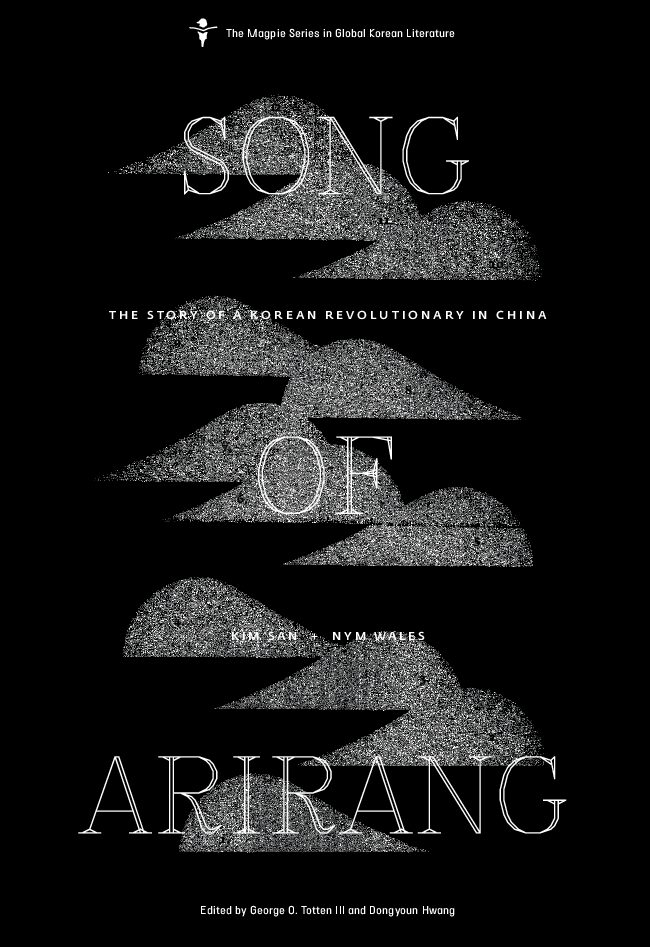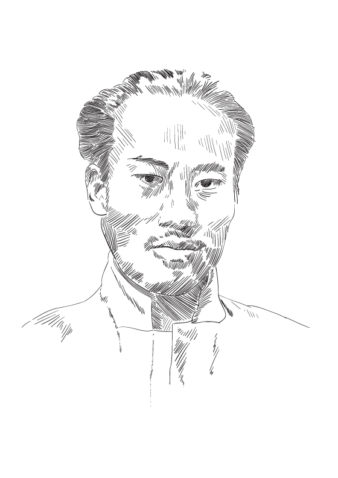
Kim San NEWS
Magpie Series in Modern and Contemporary Korean Literature opens new horizons in Korean literature in English translation by introducing exciting new literary voices from Korea, past and present. The series includes literary fiction and compelling works from the world of South Korean science fiction, fantasy, and horror. A reflexive picture of Korea and the breakneck […]
March 25, 2025 | 11:00 a.m.–6:00 p.m | Doheny Memorial Library, Friends Lecture Hall (DML 240), with hybrid access available for those outside of LA. This conference seeks to broaden and integrate existing historical accounts of colonial Korea (1910–1945) with an understanding of Korean diasporic experiences in countries such as the United States, China, and […]
Song of Arirang: The Story of A Korean Revolutionary in China
Song of Arirang tells the true story of Korean revolutionary Kim San (Jang Jirak), who left colonized Korea as a teenager to fight against Japanese imperialism and fought alongside Mao’s Red Army during the Chinese Revolution. First published in 1941, this remarkably intimate memoir (as told to the American journalist Nym Wales aka Helen Foster Snow) brings to vivid life some of the most dramatic events of the period. With its first-hand account of early twentieth century guerilla insurgency and radical cross-pollination, this rare, behind-the scenes look into what Wales describes as “the psyche of a dedicated and thoughtful revolutionary” gives vivid voice to the brutality, betrayal, and alliances that rocked East Asia at the beginning of the last century and that continue to shape the region–and the world–today. Kaya’s edition of Song of Arirang includes the writings (both literary and in essay form) of Kim San himself, translated into English for the first time ever, as well as contextualizing notes by George O Totten III and an introduction by Arif Dirlik. Edited and with an afterword by Dongyoun Hwang.
praise
“On the 102nd anniversary of the March First Movement of 1919, a turning point in Korean resistance to Japanese rule, Kaya Press will publish a new edition of Song of Arirang in its original English. It also includes, for the first time, an appendix of Kim San’s political writings, translated from Chinese, and extensive annotations by Dongyoun Hwang, a historian of Korean anarchism. To read of Kim’s life today, amid our clanging nationalisms—in the US, Korea, and all over the world—is to feel chastened by an ancestor of borderless vision. Kim was “a true transnational East Asian,” Hwang told me. “He can’t be owned or monopolized. He must be shared.” ” – E. Tammy Kim, New York Review of Books, Dec 2020
Kim San NEWS
Magpie Series in Modern and Contemporary Korean Literature opens new horizons in Korean literature in English translation by introducing exciting new literary voices from Korea, past and present. The series includes literary fiction and compelling works from the world of South Korean science fiction, fantasy, and horror. A reflexive picture of Korea and the breakneck […]
March 25, 2025 | 11:00 a.m.–6:00 p.m | Doheny Memorial Library, Friends Lecture Hall (DML 240), with hybrid access available for those outside of LA. This conference seeks to broaden and integrate existing historical accounts of colonial Korea (1910–1945) with an understanding of Korean diasporic experiences in countries such as the United States, China, and […]


